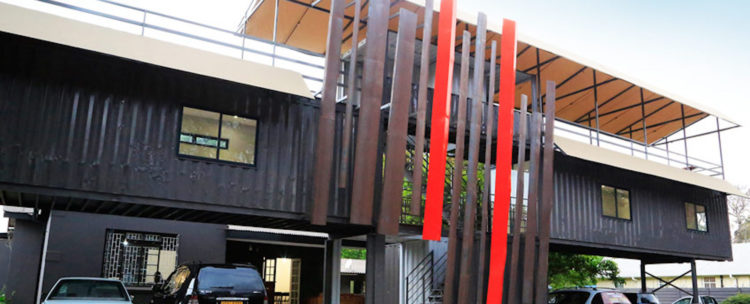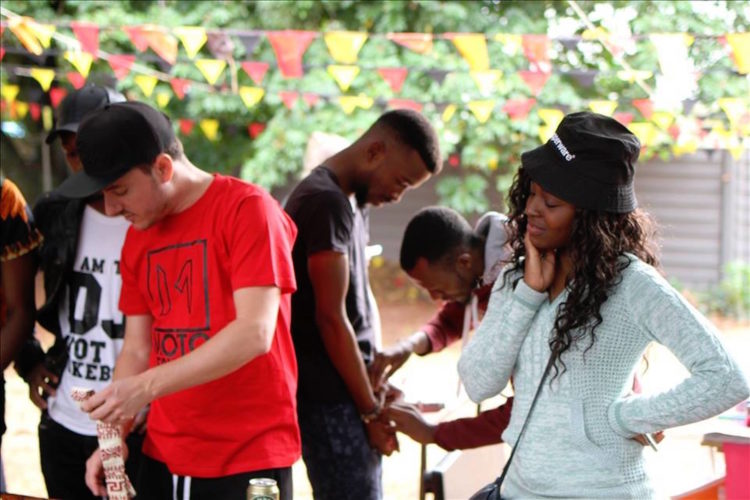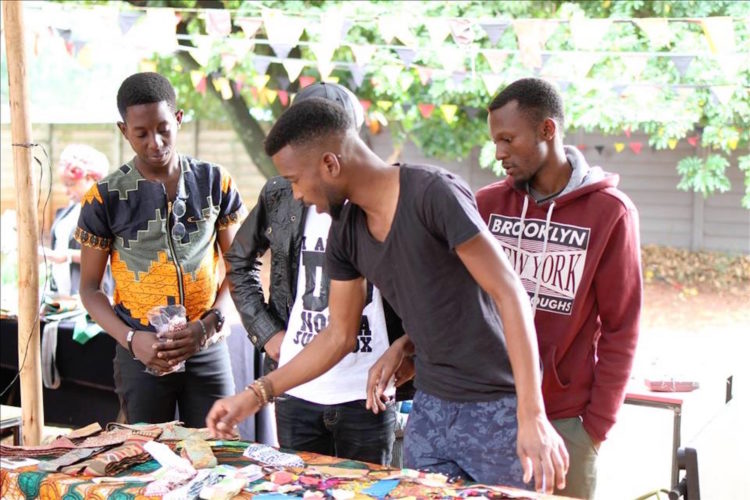When I came back to Harare in 2010, the Magamba Network consisted of two to three people putting on monthly spoken word and hip-hop events. These were hosted in the shaggily lit, pulsing heart of the city’s arts scene – the Book Café and its sister venue The Mannenberg.
The antics, characters and collaborations in those spaces weaved a thread through a community of creatives and misfits living through a strange time in a country recovering slowly, if at all, from a crippling depression.
Founded a decade ago by family of mine, both through blood and bond, Magamba Network’s offices doubled as a home for Samm Monro (aka Comrade Fatso) and Tongai Makawa (aka Outspoken). Regular guests included the artists who would use the lounge as a spare bedroom and the backs of chairs as clotheslines, me included.
Over the years Magamba grew at pace and in scale. By the end of 2011 it had more part- and full-time staff and organised what would be the first Shoko Festival that September.
The festival began as a celebration of spoken word and hip hop and every September for the last six years it has welcomed artists from Jamaica, the USA, the UK and Southern Africa. We attached talks and conferences to the festival that became discussion points in Bulawayo, Gweru and Mutare about new media and citizen journalism.
The hustle for desk space was becoming real and there was a vision and mission to be fulfilled.
That two-bed flat also saw the birth of the youth mag Kalabash Media and Zambezi News, the satirical TV show featured in international media – the UK’s Guardian, on Channel 4, the BBC, in South Africa on the SABC and on the US’s CNN. Throughout this our colleague Ngonidzashe Tapiwa aka Upmost was organising the Peace in The Hood Concert Series each month in the townships where we kicked up dust storms bouncing to Zim hip hop and dancehall.
In 2015 Magamba Network needed a new home and wanted to welcome new guests. The hustle for desk space was becoming real and there was a vision and mission to be fulfilled. We wanted to set up the first creative hub in Southern Africa, what is now Moto Republik. We wanted an embodiment of the organisation and a home for young creatives and activists to work, collaborate and carve out their ideas.
The space Moto Republik is a symbol of creativity and determination.
The tagline for the first Shoko Festival in 2011 was ‘Make It Happen’ and it keeps coming to me now. It became a mantra for the challenges that threatened the organisation’s ambition. The space Moto Republik is a symbol of creativity and determination. And everyone who has ever held an event there, worked with the team or passed through for a chat and a cigarette makes that space what it is.
#womenscoalition having an #IWD2017 event @MotoRepublik #FillupTheDome #SaveMotoRepublik pic.twitter.com/BzSyABc6Hu
— Munya Bloggo (@MunyaBloggo) March 9, 2017
Under its roof we launched Open Parly, a project where the youth document events in parliament – a project that is now to be rolled out in other parts of Africa.
Shoko Festival marched on, as did Zambezi News. The space also meant that more creatives were able to house and display their work. The Hustler’s Market is a monthly event that showcases the freshest talent from the Burger Boyz, I hear so much about, to the multitude of talented entrepreneurs, designers and baristas eager to get to work.
And this is the real point here. Not the nostalgia. The WORK.
This week the Harare City Council tried to pull this structure down and has given the team until March 16 to do so. In a country where the government admit that 95 per cent work in the informal economy, the decision to undermine work by young people is destructive.
Young people are working from here. Events and discussions are taking place. Food and clothing is being sold and that is only the beginning.
Wanna know how u can help save @MotoRepublik? Here are 3 simple steps. Tell them not to demolish Zim's first creative hub! #SaveMotoRepublik pic.twitter.com/9PT6QUMSA5
— Moto Republik (@MotoRepublik) March 10, 2017
If you support young people, if you support creativity, if you believe in the power of a movement of free-thinking individuals forging their own space and paving their own way, then sign the petition and put pressure on government and public figures.



